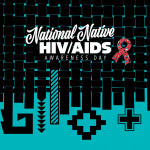The HIV movement has always been part of the struggle for civil rights. Back in the ’90s, NMAC worked with Mrs. Coretta Scott King and the King Center/The Center for Nonviolent Social Change to bring leaders from the Civil Rights movement together with the HIV movement. Mrs. King uniquely understood the importance of including our work as part of the larger struggle for justice in America.
As America celebrates Dr. King’s birthday, here is what NMAC is doing to keep his dream alive. In 2022, we will work to realign a portion of the Minority AIDS Initiative (MAI) back to its original congressional intent. NMAC will work with Ryan White Part A, B, C, and D grantee to address HIV stigma in the HIV workplace. The United States Conference on HIV/AIDS will highlight the struggle of the Latinx community when we meet in Puerto Rico. We will continue our fight for people over 50 living with HIV by expanding our efforts to bring their critical voices to Congress. NMAC will work with the White House to review standards of HIV care, especially geriatric services. Look for a special announcement about a new program for Black Women.
As we work to end the HIV epidemic, HIV stigma continues to create barriers. Only half the people living with HIV are retained in HIV care. It is incumbent to build HIV services that work with and for the communities hardest hit by HIV. While there are many types of HIV stigma, NMAC looks at stigma through the lens of race. We believe race plays a critical role in the HIV stigma that impacts too many PLHIV. Until we address race and its impact on our work, we will never end the epidemic.
For Part A, B, C, or D grantees and their subgrantees, NMAC is offering free trainings (virtual or in-person), technical assistance, and learning collaboratives to address HIV stigma in the HIV workplace. Apply at TargetHIV.org/ESCALATE. Our work faces unique issues because so many employees are also living with HIV. Not only do we need address HIV stigma in our services, we must also be responsive in our workplace. This effort is a first for NMAC. Typically we would not work with specific Ryan White funded parts. However, it’s part of our HRSA cooperative agreement and speaks directly to our mission to urgently fight for racial justice and health equity to end the HIV epidemic in America. I know everyone is busy and overwhelmed with COVID, but I’m inviting Part A, B, C, and D grantees to work with NMAC to reduce HIV stigma in the HIV workplace. Please email Ken Pettigrew for more information.
NMAC is calling on Health and Human Services and the White House to bring a portion of the Minority AIDS Initiative back to its original congressional intent. Not all the money, but enough to start to provide racial justice to the communities in need. The impact of past funding decisions has decimated a once vibrant cohort of minority led HIV organizations. NMAC is calling for justice for the minority led agencies that closed when HHS changed the intent of the MAI. To be clear, justice is not equality. Justice is for communities who were disadvantaged because of systemic rules that minimized their value or contributions. The MAI is a clear example of funding that was set up for people of color only to be taken away when more money was authorized. I am very excited that Dr. Maya Rockeymoore Cummings has come on board as a consultant to lead our MAI efforts.
NMAC understands the complexities of using race as a factor in funding decisions; however, it is not impossible. Our fight for MAI justice is part of our commitment to keep Dr. King’s dream alive. HIV has an opportunity to impact more than our movement. Figuring out how to use race as a factor in federal procurement has ramifications way beyond our work. As we’ve seen with COVID vaccines, the HIV infrastructure can be used to build a better world.
Yours in the Struggle,
Paul Kawata








Comments
Comments